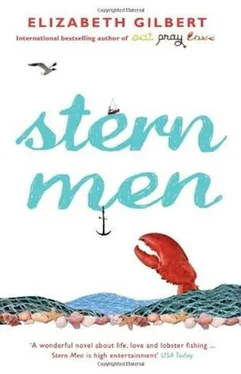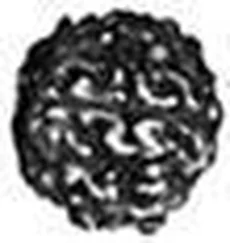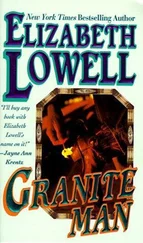“Iceland?”
“No, no. That’s Iceland, Ruth. Right where it should be. This is a mythical island, called Frislant. It shows up on all kinds of old maps. There’s no such place. Isn’t that the strangest thing? It is drawn so distinctly, as if the cartographers were certain of it. It was probably a mistake in a sailor’s report. That’s where the mapmakers got their information, Ruth. They never left home. That’s the remarkable thing, Ruth. They were just like me.”
The Senator fingered his nose. “But they did get it wrong sometimes. You can see Gerhardus Mercator is still convinced that there’s a Northeast Passage to the Orient. He obviously had no idea of the polar ice factor! Do you think the mapmakers were heroes, Ruth? I do.”
“Oh, sure, Senator.”
“I think they were. Look how they shaped a continent from the outside in. North Africa’s sixteenth-century maps, for instance, are correct around the edges. They knew how to chart those coasts, the Portuguese. But they didn’t know what was going on inside, or how big the continent was. Oh, no, they sure didn’t know that, Ruth.”
“No. Do you think we could take some of these boards off the windows?”
“I don’t want anyone to see what we’re doing. I want it to be a surprise to everyone once we’re finished.”
“What are we doing, Senator?”
“Making a display.” The Senator was paging through another one of his map books, and his face was soft and loving as he said, “Oh, for the love of mud, did they ever get that wrong. The Gulf of Mexico is huge. ”
Ruth looked over his shoulder at a reproduction of an ungainly, ancient map but couldn’t make out any of the writing on the page. “We need to get more light in here, I think. Don’t you think we should start cleaning this place a little, Senator?”
“I like the stories about how wrong they got it. Like Cabral. Pedro Cabral. Sailed west in 1520 trying to find India and ran right into Brazil! And John Cabot was trying to find Japan and ended up in Newfoundland. Verrazano was looking for a westward passage to the Spice Islands and ends up in New York Harbor. He thought it was a sea lane. The risks they took! Oh, how they tried!”
The Senator was in low-level ecstasy now. Ruth started to unpack a box marked SHIPWRECKS: PHOTOS/PAMPHLETS III. This was one of the many boxes containing items for the display the Senator planned to call either “Wages of Neptune” or “We Are Punished,” a display entirely devoted to accidents at sea. The first item she pulled out was a folder, labeled Medical in Senator Simon’s remarkable, antique script. She knew exactly what it was. She remembered looking through it when she was a little girl, peering at the ghastly pictures of shipwreck survivors, as Senator Simon told her the story of each man and each wreck.
“This could happen to you, Ruth,” he’d say. “This could happen to anyone in a boat.”
Now Ruth opened the folder and looked at each familiar old nightmare: the infected bluefish bite; the dinner plate-size leg ulcer; the man whose buttocks had rotted away after he’d sat on a wet coil of rope for three weeks; the saltwater boils; the blackening sunburns; the feet swollen with water bite; the amputations; the mummified corpse in the lifeboat.
“Here’s a lovely print!” Senator Simon said. He was looking through another box, this one marked SHIKPWRECKS: PHOTOS/PAMPHLETS VI. From a file labeled Heroes, the Senator pulled an etching of a woman on a beach. Her hair was in a loose bun, and a heavy length of rope was slung over one shoulder.
“Mrs. White,” he said fondly. “Hello, Mrs. White. From Scotland. When a ship wrecked on the rocks near her home, she had the sailors on board throw her a rope. Then she dug her heels into the sand and pulled the sailors to shore, one at a time. Doesn’t she look hale?”
Ruth agreed that Mrs. White looked hale, and dug further through the Medical file. She found index cards scribbled with brief notes in Simon’s handwriting.
One card read only: “Symptoms: shivers, headaches, reluctance to move, drowsiness, torpor, death.”
Another read: “Thirst: drink urine, blood, fluid of own blisters, spirit fluid of compass.”
Another: “Dec. 1710, Nottingham wrecked Boon Island. 26 days. Crew ate ship’s carpenter.”
Another: “Mrs. Rogers, stewardess of Stella. Helped ladies into lifeboat, gave up own vest. DIES! GOES DOWN WITH SHIP!”
Ruth handed that last card to Senator Simon and said, “I think this one belongs in the Heroes file.” He squinted at the card and said, “You’re absolutely right, Ruth. How did Mrs. Rogers ever get in the Medical file? And look what I just found in the Heroes file that doesn’t belong there at all.”
He handed Ruth an index card reading: “ Augusta M. Gott, capsized, Gulf Stream, 1868. Erasmus Cousins (of BROOKSVILLE, MAINE!) selected by lot to be eaten. Saved only by sight of rescue sail. E. Cousins had bad stammer rest of life; E. Cousins-NEVER ReTURNED TO SEA!”
“Do you have a cannibalism file?” Ruth asked.
“This is much more poorly organized than I thought,” said Senator Simon, mournfully.
It was at that moment that Cal Cooley stepped through the front door of the Ellis Granite Company Store building, without knocking.
“ There’s my Ruth,” he said.
“Shit,” Ruth said, simply and with dread.
Cal Cooley hung around a long time in the Ellis Granite Company Store that afternoon. He rifled through Senator Simon’s belongings, taking things out of order and putting things back in the wrong place. He agitated Senator Simon no end by handling some of the artifacts quite rudely. Ruth tried to keep her mouth shut. Her stomach hurt. She tried to be quiet and stay out of the way so that he wouldn’t talk to her, but there was no avoiding him on his mission. After an hour of being a nuisance, Cal said, “You never went to see Mr. Ellis for dinner in July, as he invited you to do.”
“Sorry about that.”
“I doubt it.”
“I forgot. Tell him I’m sorry.”
“Tell him yourself. He wants to see you.”
Senator Simon brightened and said, “Ruth, maybe you can ask Mr. Ellis about the basement!”
Senator Simon had recently found row upon row of locked file cabinets in the basement of the Ellis Granite Company Store. They were full, Senator Simon was sure, of fascinating Ellis Granite Company documents, and the Senator wanted permission to go through them and perhaps display a few of the choice items in the museum. He had written Mr. Ellis a letter requesting permission but had received no response.
“I can’t make it up there today, Cal,” Ruth said.
“Tomorrow’s fine.”
“I can’t make it up there tomorrow, either.”
“He wants to talk to you, Ruth. He has something to tell you.”
“I’m not interested.”
“I think it would be to your benefit to stop by. I’ll give you a ride, if that makes it easier.”
“I’m not going, Cal,” Ruth said.
“Why don’t you go see him, Ruth?” Senator Simon said. “You could ask him about the basement. Maybe I could come with you…”
“How does this weekend look? Maybe you can come for dinner Friday night. Or breakfast on Saturday?”
“I’m not going, Cal.”
“How does next Sunday morning sound? Or the Sunday after that?”
Ruth thought for a moment. “Mr. Ellis will be gone by the Sunday after that.”
“What makes you think so?”
“Because he always leaves Fort Niles on the second Saturday of September. He’ll be back in Concord the Sunday after next.”
“No, he won’t. He made it very clear to me that he’s not leaving Fort Niles until he sees you.”
Читать дальше









